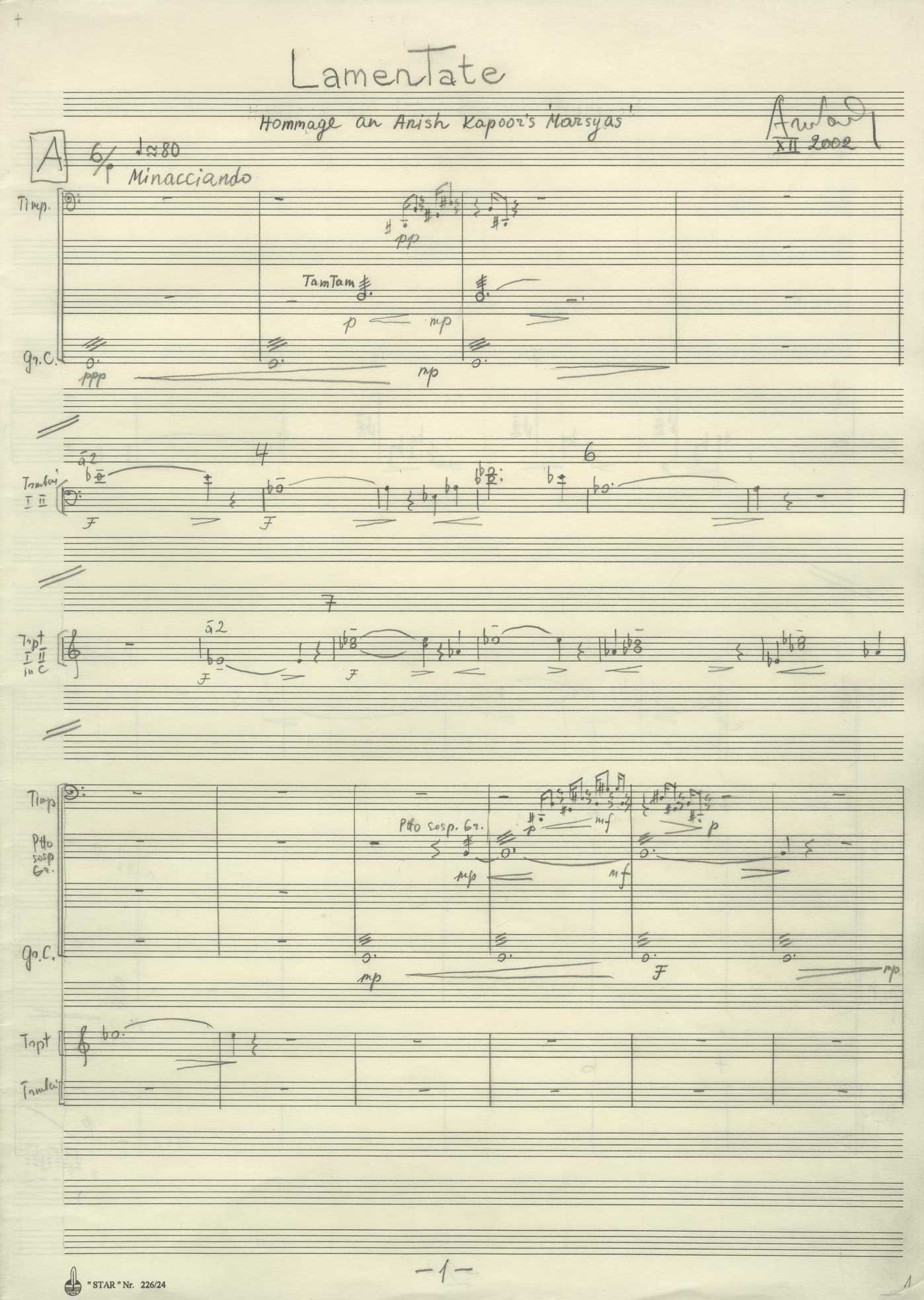Scored for
Duration
35–40 min
Short description
Composed for piano and orchestra, Lamentate was commissioned by London’s Tate Modern and was inspired by Marsyas, the giant sculpture by Anish Kapoor (b. 1954), the British sculptor and multimedia artist of Indian origin. Hence the subtitle of the work, Homage to Anish Kapoor and his sculpture Marsyas.
Kapoor’s installation was intended to work as an interaction between visual-spatial and acoustic qualities. In composing the piece, Pärt also considered the specific acoustics of the space where Kapoor’s sculpture was displayed – the turbine hall of an old power house. This is also where Lamentate was premiered on 7 February 2003, performed by pianist Hélène Grimaud, and the London Sinfonietta conducted by Alexander Briger. Pärt made …

Alexei Lubimov (piano), SWR Stuttgart Radio Symphony Orchestra, Andrei Boreiko (conductor). CD Lamentate. ECM New Series 1930
© ECM Records
World premiere
Concert: LamenTate
London Sinfonietta , Hélène Grimaud (piano), Alexander Briger (conductor)
Completion year
Commissioned by
Scored for
Duration
Publishers
Instrumentation details
Source text
Век мой скончавается, и страшный Твой престол готовится, житие мое мимоходит, суд мене ждет.
Dies irae, dies illa, solvet saeculum in favilla ...
Оком благоутробным, Господи, виждь мое смирение, яко помале жизнь моя иждивается, и от дел несть мне спасения. Сего ради молюся: оком благоутробным, Господи, виждь мое смирение, и спаси мя.
Слава Отцу и Сыну и Святому Духу.
Век мой скончавается, и страшный Твой престол готовится, житие мое мимоходит, суд мене ждет, претя мне огненною мукою и пламенем негасимым.
Век мой скончавается, и страшный Твой престол готовится, житие мое мимоходит, суд мене ждет, претя мне огненною мукою и пламенем негасимым: слез тучу подаждь ми, и угаси его силу, хотяй спастися всем человеком.
И ныне и присно и во веки веков. Аминь.
Иже нас ради рождейся от Девы, и распятие претерпев Бл…

